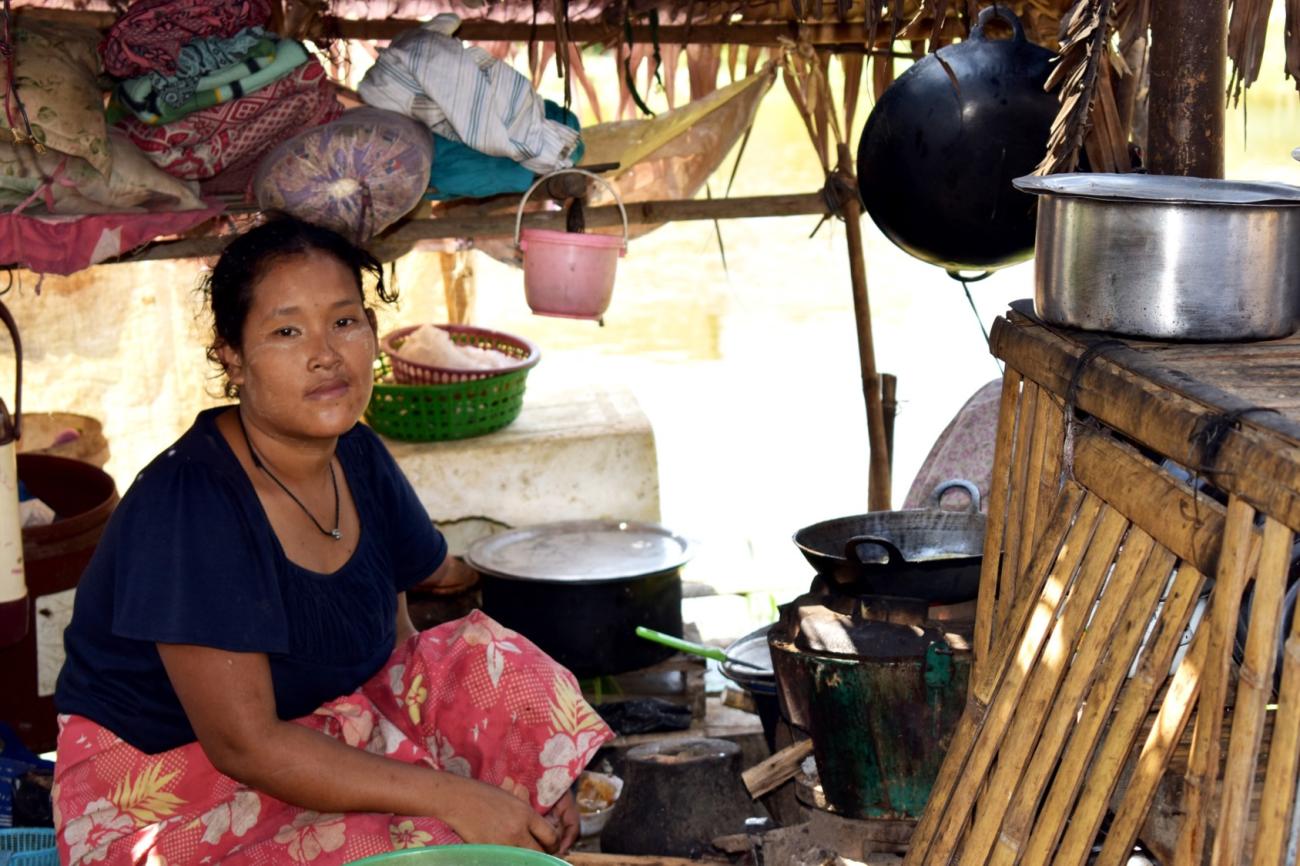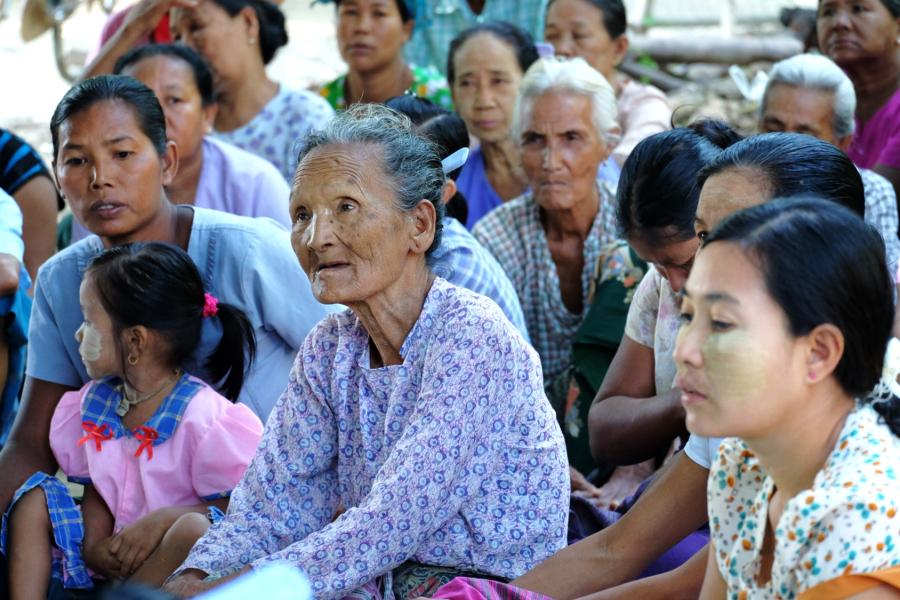Informal settlements at the heart of United Nations response to COVID-19 in Myanmar

The UN in Myanmar has come together as one to support COVID-19 preparedness and response. The next in a series of articles highlights UN-Habitat's contribution.
Approximately 400,000 people in 423 informal settlement find themselves at the forefront of the fight against COVID-19. Given the unique vulnerabilities of these settlements, including high density, inadequate access to water and sanitation, and security of tenure, UN-Habitat has engaged with community leaders and grassroots civil society organizations (CSOs) in three townships in Yangon to amplify efforts to combat COVID-19.
The most vulnerable at the center of response
UN-Habitat is reaching out to 14,000 households in Hlaingthayar, Shwepyitha, Dala, South Dagon and Dagon Seikkan townships. Through a network of 131 local-level community volunteers, these households have receiving accurate information on the symptoms of COVID-19, and key preventive actions to keep themselves and their families safe. Responding to community needs, UN-Habitat is also providing approximately 70,000 people in informal settlements with protective masks. Additionally, a network of 55 hands-free handwashing stations are being installed in key locations within informal settlements in three townships.
The community volunteers are trained remotely, and provided with personal protective equipment (PPE) kits and a per-diem as livelihood support. UN-Habitat is providing PPE kits including 900 sets of N-95 masks, face vizors, googles, surgical gowns, caps, and gloves, and hand sanitizers to three key hospitals/fever clinics serving the vulnerable urban poor in informal settlements.
Policy Interventions for protection of shelter UN-Habitat’s rapid assessment survey to look at the impact of COVID-19 in informal settlements in Yangon drew attention to the alarming situation of job loss, income and food insecurity, and threat of evictions in informal settlements. In addition, UN-Habitat released a discussion paper outlining four key policy options to secure adequate housing for the vulnerable urban poor during the pandemic. Further to the publications, the agency convened an Urban Stakeholders Meeting with 17 key agencies and government partners where concerted action between actors and immediate policy measures for the urban poor were advocated for.
Continuous engagement on finding solutions for the vulnerable urban poor in Myanmar
UN-Habitat conducted the first comprehensive mapping of informal settlements in Yangon, which identified that close to 10 percent of the city’s population lives in 423 pockets of settlements. As part of supporting the fight against COVID-19 in these areas, in March 2020, UN-Habitat completed the handover ceremony for a water treatment plant as an in-situ slum upgrading project, which can provide nearly 8,000 people with access to reliable and safe drinking water. The community-driven project has been implemented by the community themselves with technical support from the agency. This was the fourth community driven stand-alone water supply project implemented in Peri Urban Yangon by UN-Habitat. Earlier in August 2019, UN-Habitat in partnership with the Department of Urban and Housing Development (DUHD) supported the Yangon Region Government to organize a two-day workshop titled “Slums and Informal Settlements in Yangon: The Way Forward”. The workshop discussed pragmatic policies and actions to address the issues in slums and informal settlements in Yangon.
Moving forward, UN-Habitat plans to continue its efforts to address the issues of the vulnerable urban poor in the coming months focusing on expanding access to WASH infrastructure in informal settlements, pilot in-situ upgrading projects in identified informal settlements, and advocacy efforts on key policy measures to protect urban poor communities, including homeless population, and build back better post-COVID-19.
Sustainable future for the poorest in Myanmar’s urban areas
The COVID-19 pandemic has brought to the forefront the urgent need for adequate housing, and water, sanitation and hygiene facilities to secure the health, livelihoods, and economic security of the vulnerable urban poor in Myanmar. While the pandemic has exposed several challenges, UN-Habitat sees this as an urgent call to reinvigorate efforts and reimagine solutions that secure a sustainable future for the poorest in Myanmar’s urban areas.








